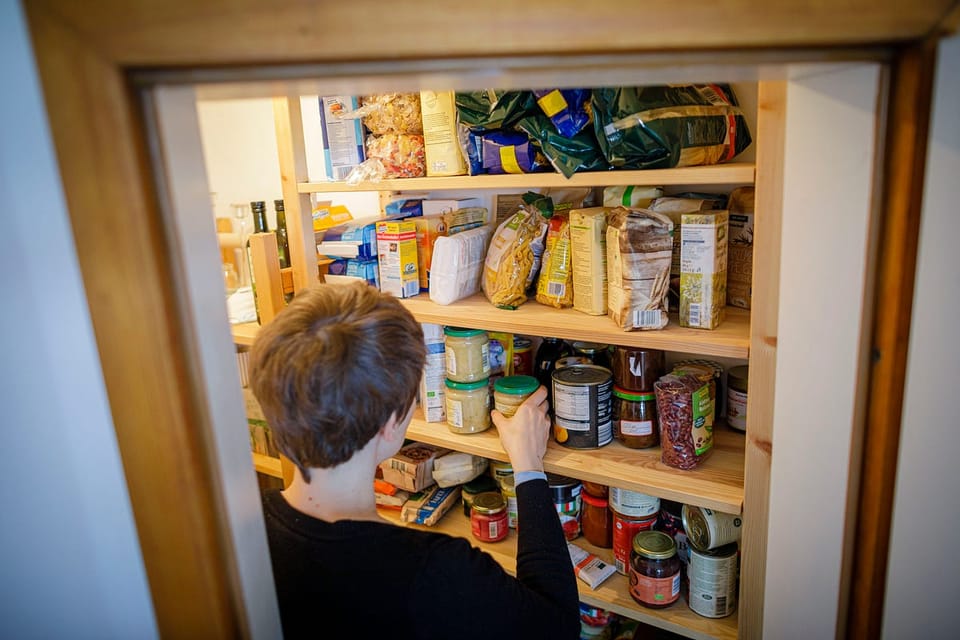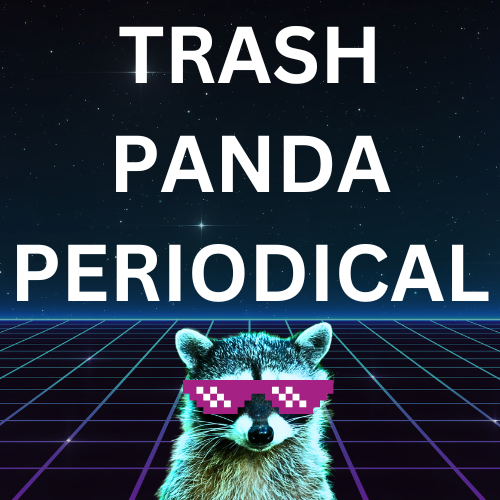I’m an Anarchist Who’s Always Prepared for Crisis — Now It’s Here

When I saw an urgent call from a local ER doctor asking for N95 masks, I answered. I happened to have 40 in my prepper gear, mostly to hand out during fire season. I didn’t think twice about digging them out and leaving them by that doctor’s garage.
I’m not exactly what you might imagine when you think of someone who prepares for the end of the world as we know it. The stereotype, thanks to shows like Doomsday Preppers, is usually someone in a rural area, deeply conservative, with a bunker filled with guns and canned food. I am the opposite of that. I’m disabled, for a start, and queer, with brightly colored hair and a collection of T-shirts with Dungeons and Dragons puns. I rent an apartment in a city where I don’t even have a backyard. I don’t currently own a gun, though I know how to shoot one.
When the world is crashing down, much like it is at the moment due to Covid-19, I’m more likely to go into the chaos in order to help others than I am to hole up and wait for it to pass.
Most important to my ethics, I’m an anarchist, which for me means that I don’t have high expectations for the government to be working in my best interests in the best of times — and certainly not in the worst of times. Instead, I form connections with my local community so we can form a safety net without relying on government help.
It has never been more clear how interconnected we are, and how badly we need to care for each other, for our own sake as well as society’s.
A big part of my value system is mutual aid, which for me, boils down to the belief that we have a better chance at survival when we cooperate rather than compete. Altruism is pragmatic because when we give to others, we all benefit — an idea outlined in Mutual Aid: A Factor of Evolution by Pëtr Kropotkin, a Russian anarchist, published back in 1902. This comes in stark contrast to the “survival of the fittest” mantra.
In our current state of emergency, more people are beginning to look into mutual aid networks—essentially, these informal systems created by the community to serve the community on a voluntary basis. Many people have lost their jobs due to the coronavirus and realizing how tenuous their stability was all along. With so many out of work, and so few businesses open, folks are beginning to see the harsh reality that it’s not so easy to just “get a job” to get by on their own. People are looking to each other for assistance to get by—here in San Francisco, it looks like at least 1 in 17 people are unable to pay rent. Those who are immunocompromised and/or elderly are asking for help with grocery shopping so they can limit their exposure.
It has never been more clear how interconnected we are, and how badly we need to care for each other, for our own sake as well as society’s.
The term mutual aid is becoming mainstream during this moment, but many people have been working on these efforts for decades. I personally got into mutual aid over 10 years ago when I became a street medic for protests, starting with Occupy and coming into my own at Black Lives Matter protests and the Battles for Berkeley.
Being a medic was hard work, often involving marching alongside and offering aid as needed for eight hours, sometimes longer, often in nerve-wracking conditions. I had to be wary of MAGA hat-wearing Proud Boys and the cops in equal measure. I found myself driven to further help outside of the chaos and trauma of protests, doing basic first aid for homeless encampments and connecting my friends to Narcan trainings in the Bay Area. What started as filling a role during a certain situation became the way I live.
An ‘every-man-for-himself’ way of thinking is exactly the opposite of what is required in the face of a pandemic.
I don’t do community care because I expect immediate compensation or even gratitude. I donated those N95 masks because, by making sure medical professionals have some protective gear, I’m helping slow down the spread of this pandemic. Slowing the pandemic will mean I can safely get out of shelter in place that much sooner. I do it for my houseless community because they’re my neighbors, and we look out for each other — relieving desperation means less petty crime in my neighborhood.
Altruism is, in the end, somewhat selfish, but that doesn’t make it any less valuable.
Mutual aid networks aren’t just an anarchist concept. They have existed long before the current crisis, from medieval guilds to the Black Panther Party, to modern day unions. These voluntary collectives are still incredibly useful. Habitat for Humanity, a group that builds houses for the unhoused, is one great example, as is Mask Oakland (which provides N95 masks to people in need during California fire season) or Common Ground Relief and Clinic in New Orleans post-Katrina. It’s seen in food distribution groups like Food Not Bombs in People’s Park in Berkeley, or West Oakland Punks With Lunch. GoFundMe petitions asking for help to pay rent or medical bills are also an example of mutual aid on a larger level.
Our society typically favors a more individualist approach. Many preppers, for example, are more interested in protecting themselves and their families than collaborating or cooperating. In the current crisis, we’ve seen many people with resources looking out for themselves by chartering planes and fleeing to their beach cottages (risking contaminating new communities and sapping small towns of their already strained resources). An “every-man-for-himself” way of thinking is exactly the opposite of what is required in the face of a pandemic, where no one is an island, not even an island.
Government assistance is good when — or if — it happens, but it can take far longer to manifest than what we can do ourselves.
This is why I especially like mutual aid initiatives as a grassroots approach to disaster preparedness. It encourages us to step away from our cultural, capitalist desire to clutch, to withdraw, and to instead reach out to our neighbors who need help. You don’t have to be wealthy or have a lot of available time to support people using these mutual aid networks. What you have available is enough to help others, and whatever you can spare is valuable.
Looking over one local list from the Bay Area specific mutual aid resource guide, I saw requests for help with rent money, a bicycle to exercise safely, painting tips, homeschooling advice, someone to go to the grocery store to pick up baby formula. I also saw how many requests had been fulfilled, strangers taking care of strangers, a leap of faith on everyone’s part. It brings me to tears every time.
Another advantage to mutual aid is that it can begin today, right now. Government assistance is good when—or if—it happens, but it can take far longer to manifest than what we can do ourselves. Even when it does come, it’s often not enough, and many people are left out of the services and resources provided because they don’t fit the right profile.
One of my favorite books, A Paradise Built in Hell by Rebecca Solnit, illustrates situations in which local communities and businesses provided better care weeks faster than the government. In fact, Solnit outlines several scenarios in which government officials actively pushed back against mutual aid projects, seemingly hindering them out of a desire for control and power instead of actually caring for their most vulnerable people.
Bureaucracy is inefficient at the best of times — but it can be deadly in an emergency, where every minute matters, and it exposes itself as both inefficient and dangerous when we, as a people, look closely at it.
As Solnit said in an interview with WBUR:
You know, this sense that suddenly everything can be profoundly different because something terrible has happened does remind us that everything can be profoundly different, maybe even not just because something terrible has happened. The powerful are often scrambling to restore a status quo that worked very well for them. The less powerful are often saying, “Wow, everything has changed. We’re not ready to change it all back.”
In order to not change it all back, it’s important to explore how to do this work sustainably. There is always more need for help, not just during a disaster but in the aftermath, and it is overwhelming. For me, it’s useful to remember that it’s important to put on my oxygen mask first, so that I can better help others. I am useless to everyone if I’m burned out and emotionally drained, and so are you. I set small, manageable goals to do some mutual aid work every day, and I vary the work I do so I stay balanced. I also make sure to set aside time each week for my hobbies; I play Dungeons and Dragons with friends twice a week, and fill the rest of my down time with cooking, knitting, and writing.
I also remember that I am allowed to ask for aid, not just provide it. That’s one major thing I love about mutual aid projects — the dynamic doesn’t put one person in a position of power over another. Recently, I offered an extra bottle of hand sanitizer to a friend who works on the frontlines, and they asked what I might want from Target, which was one of their errands that day. I got some flour and Earth Balance vegan butter spread dropped off, which then allowed me to bake some bread.
Mutual aid, when done well, can be a flowing exchange of resources. This is intuitive to the poor people I know, who often pass around the same $5 on an as needed basis — this week I might need $5 to eat, but when I get paid, I’ll pass that $5 on to someone who needs it for gas, and so on.
It’s been incredible to watch how many people, when met with a pandemic, have found ways to take care of themselves and their communities. We need to retain that energy as shelter in place stretches from weeks to months. Pacing ourselves is an important part of that process, as is taking care of ourselves. Many people are doing hobbies they never had time for before: baking, gardening, art, music. Others are committing to exercising for their bodies and minds.
Collectively, we are caring for each other in this moment, whether it by checking in with a friend, running an errand for a neighbor, or simply staying home so others don’t get sick. May we all remember how valuable that is, and how good it feels—not just today, not just during this pandemic’s epicenter, but for the rest of our lives.

Comments ()